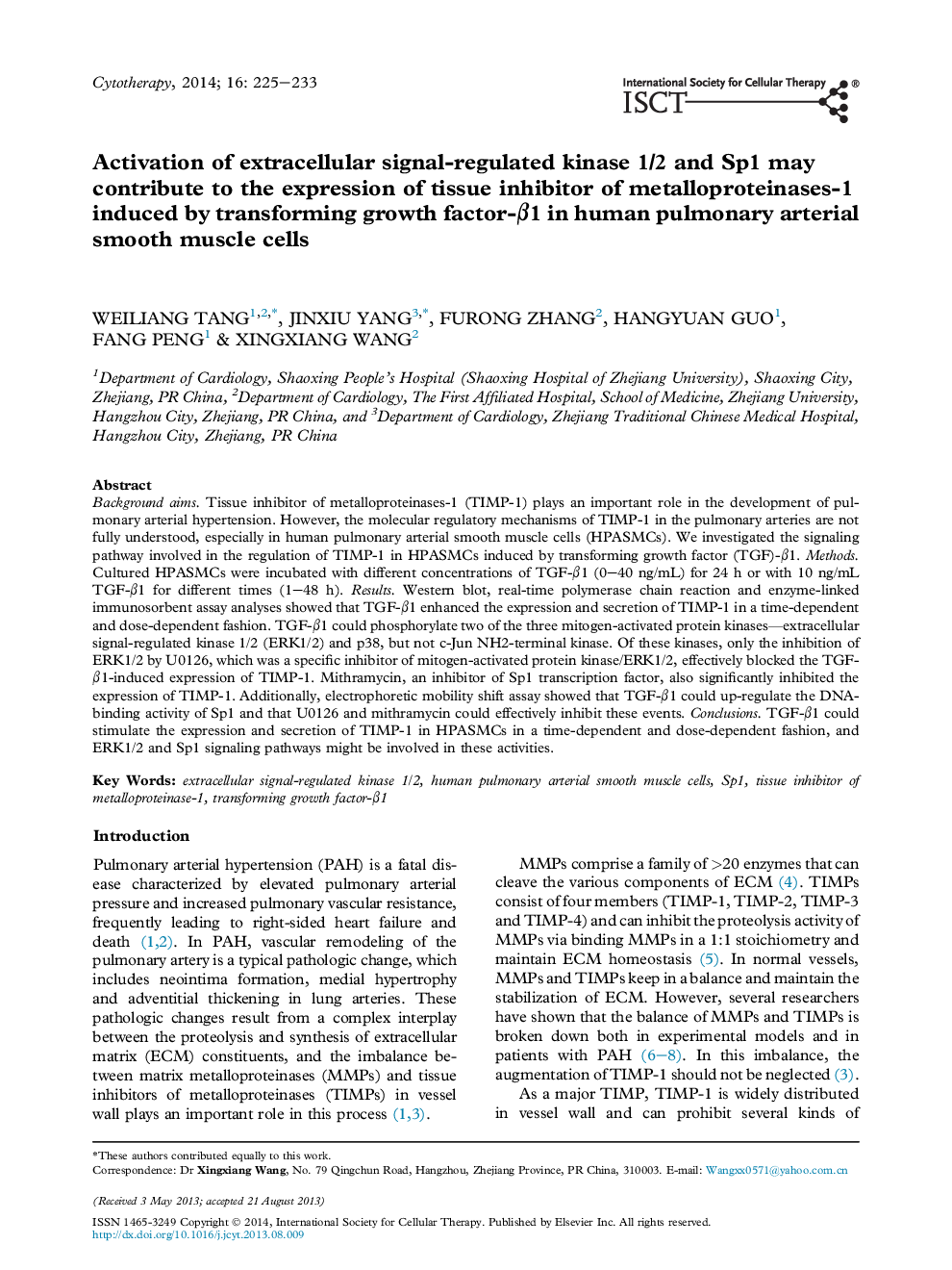| Article ID | Journal | Published Year | Pages | File Type |
|---|---|---|---|---|
| 2171806 | Cytotherapy | 2014 | 9 Pages |
Background aimsTissue inhibitor of metalloproteinases-1 (TIMP-1) plays an important role in the development of pulmonary arterial hypertension. However, the molecular regulatory mechanisms of TIMP-1 in the pulmonary arteries are not fully understood, especially in human pulmonary arterial smooth muscle cells (HPASMCs). We investigated the signaling pathway involved in the regulation of TIMP-1 in HPASMCs induced by transforming growth factor (TGF)-β1.MethodsCultured HPASMCs were incubated with different concentrations of TGF-β1 (0–40 ng/mL) for 24 h or with 10 ng/mL TGF-β1 for different times (1–48 h).ResultsWestern blot, real-time polymerase chain reaction and enzyme-linked immunosorbent assay analyses showed that TGF-β1 enhanced the expression and secretion of TIMP-1 in a time-dependent and dose-dependent fashion. TGF-β1 could phosphorylate two of the three mitogen-activated protein kinases—extracellular signal-regulated kinase 1/2 (ERK1/2) and p38, but not c-Jun NH2-terminal kinase. Of these kinases, only the inhibition of ERK1/2 by U0126, which was a specific inhibitor of mitogen-activated protein kinase/ERK1/2, effectively blocked the TGF-β1-induced expression of TIMP-1. Mithramycin, an inhibitor of Sp1 transcription factor, also significantly inhibited the expression of TIMP-1. Additionally, electrophoretic mobility shift assay showed that TGF-β1 could up-regulate the DNA-binding activity of Sp1 and that U0126 and mithramycin could effectively inhibit these events.ConclusionsTGF-β1 could stimulate the expression and secretion of TIMP-1 in HPASMCs in a time-dependent and dose-dependent fashion, and ERK1/2 and Sp1 signaling pathways might be involved in these activities.
